The last year and a half has been a time of heightened crisis, from the pandemic and the inequalities it has revealed, to brutally racist police violence, to the unlawful occupation of Palestine, and many more unjust and unsettling events. In times like these some might ask “Is there a place for culture in all this? Is art not frivolous in the face of such injustices?”
These are the questions Opening Night at the Edinburgh International Book Festival seeks to address. Festival director Nick Barley, introduced by the night’s host, author Kirstin Innes, states that he wants the festival, this year more than ever, to be an event that promotes discourse and dialogue.
After technical difficulties cause the night’s first guests, Egyptian musicians and poets Eskenderella, to bow out early, Turkish novelist Elif Shafak is the first to contribute to the conversation and she does so with insight, empathy, and a sense of poetry. She argues the case for culture in this time of crisis (as does everyone tonight, unsurprisingly of course) stating that now, more than ever, when so many people have been rendered voiceless by global injustices “we need to hear each other’s voices so we can know we are not alone”.
Next to the stage is Scottish poet Angus Peter Campbell, who, referring to his mask, states “I shall leave this on as a Gaelic metaphor”. In part promoting his latest book – a Gaelic translation of George Orwell’s Animal Farm – Campbell dips in and out of Gaelic and English throughout his talk, at one point singing a full Gaelic translation of ‘Beasts of England’, the anthem sung by the farm animals in Orwell’s novel. After Shafak’s earlier advocacy of us listening to each other’s voices, there is an added poignancy to hearing Campbell singing, almost lonely yet still defiant, in this language under threat.
Ghanian writer Nana Oforiatta Ayim is next to join, and has a refreshing sense of optimism to her, seeming excited to share with the Edinburgh audience her experiences and the changes she has witnessed in Ghana since the start of the pandemic. She explains that herself and many others started to look towards traditional healers and began to advocate for growing your own food. This farming, she says, became more than just a source of food to them, many people exploring historical approaches to ecology and finding the art and the spirituality in it. This serves as a fitting reminder that culture and art can come in many forms outside of the rigid structures we sometimes place them in.
Tice Chin, an interdisciplinary artist based in North London, is next to the stage and performs a piece, half-spoken half-sung, from her upcoming book Keeping the House. It’s an almost dream-like break from the other guests, her delivery soft and almost slurred, her words seeming to concern mundanity and romanticism simultaneously. Chin will be reappearing at the festival Wednesday 25 August to discuss Keeping the House in more detail. Tickets are available here.
Canadian novelist Emily St John Mandel is next to have her say on culture in a time of crisis, quoting a Star Trek line that has stayed with her since her teens – “survival is insufficient” – and adding “as a species we are never satisfied with bare survival – we need culture”. Joining by video call from Brooklyn, New York, she comments on the current reality of the US under the influence of the pandemic and concludes that there’s “nothing frivolous” about our need for culture.
The stand out speaker of the evening is Palestinian writer and activist Nayrouz Qarmout, who moves me and just about everyone else present to tears with a video piece that focuses on the role of culture in a Palestine bombarded by Israeli attacks. The line “we love life whenever we can” feels particularly gut-wrenching set over the footage of bombed Gaza and the people there still trying to live and create amongst its ruins. When Qarmout herself joins via video call after the film she is also visibly moved and expresses via her interpreter that it is difficult to convey exactly how it feels to live in the siege, but reiterates that ultimately, they are seeking freedom.
Unfortunately, in contrast to the power of Nayrouz Qarmout’s address, when Scottish poet and Scots language advocate Len Pennie joins next via video call, her words err on the side of triviality with a reading of a poem that considers the concept ‘what if books read us back’, an idea that seems somewhat trite in the face of Palestinian suffering. However, I do feel that this sense of triviality is due in part to poor scheduling decisions by the event’s organisers, and it’s unfortunate that Pennie fell victim to this. Her second reading is a definite turn for the better with her poem 'I'm no havin' children', a defiant celebration of keeping the Scots language alive which Pennie performs with bite and pride.
The final guest of the evening is Glasgow-based singer-songwriter Zoe Graham, whose charming acoustic performance is a sweet end to the event although it does fall a little flat after the insightfulness and impact of the other performers. However, I’m sure no one wanted to be sent weeping into the night and Graham’s set is a welcomingly gentle send off.
The Edinburgh International Book Festival is on until 31 August. More information is available here.
Books from the event’s speakers are available to buy here.

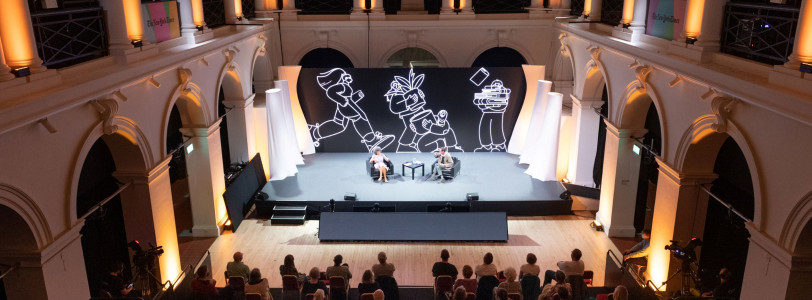
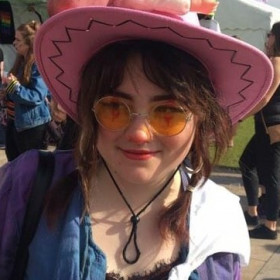
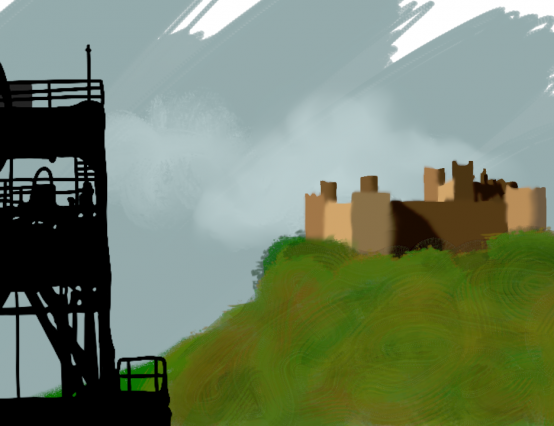
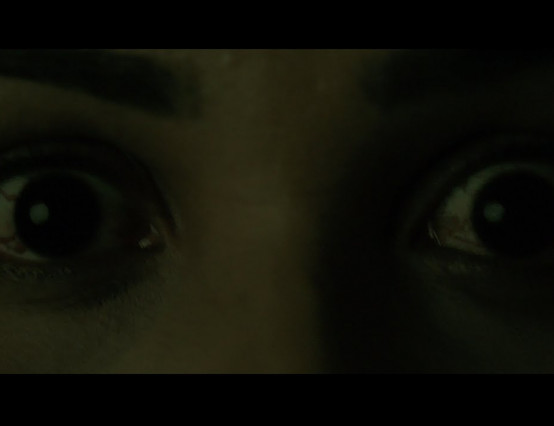



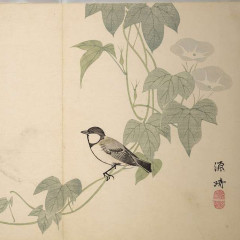
0 Comments